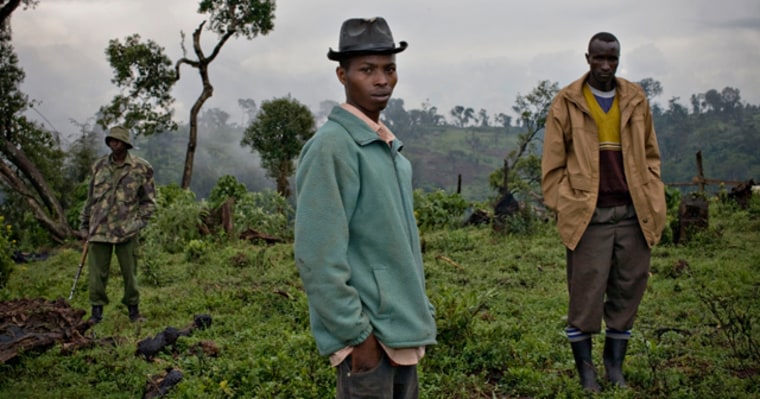The Kenyan government will evict thousands of people from the country's largest forest to protect the watershed for Lake Victoria, a source of the Nile, the prime minister said Friday.
Humans have built homes and farms and cut down trees for timber in a complex of forests in southwestern Kenya known as the Mau. Over the past 16 years, 25 percent of the nearly 1 million-acre forest have been cut, reducing water levels in some of Kenya's key rivers as rain increasingly washes soil into the waterways, the government said in a new report.
The report said a program granting a small forest-dwelling tribe legal rights to live there, had been manipulated to give ownership of large tracts to politically connected individuals. The report says at least 45,000 people now live in the forest and should be moved out to allow it to re-grow.
The Mau feeds 12 rivers and the forest's destruction has caused power shortages because 80 percent of Kenya's electricity comes from dams.
The report also said that rivers feeding Lake Nakuru, a major tourist draw, no longer flow year-round. The reduced water levels have seen flamingoes desert Lake Nakuru National Park, a major draw for bird-watchers. Kenya's wildlife authority has been forced to pump water into the lake to sustain it.
The government will resettle over 2,500 households on 71,659 acres of publicly owned forest, Prime Minister Raila Odinga said. An average household in Kenya is estimated to have five people, putting the number to be evicted at more than 12,500.
The government will also replant trees in the Mau and form a force of police and wildlife and forest rangers to protect the forest, asking donors to help defray the total cost of $483 million.
The task force that produced the report on the forest recommended all people living there should be evicted.
"Failure to do so will lead to untold suffering by the people of Kenya and the neighboring countries, for which history will judge the present generation harshly," it said.
Only those who legally settled in the forest should be compensated or be resettled elsewhere, the report recommended. It does not say how many people legally settled.
